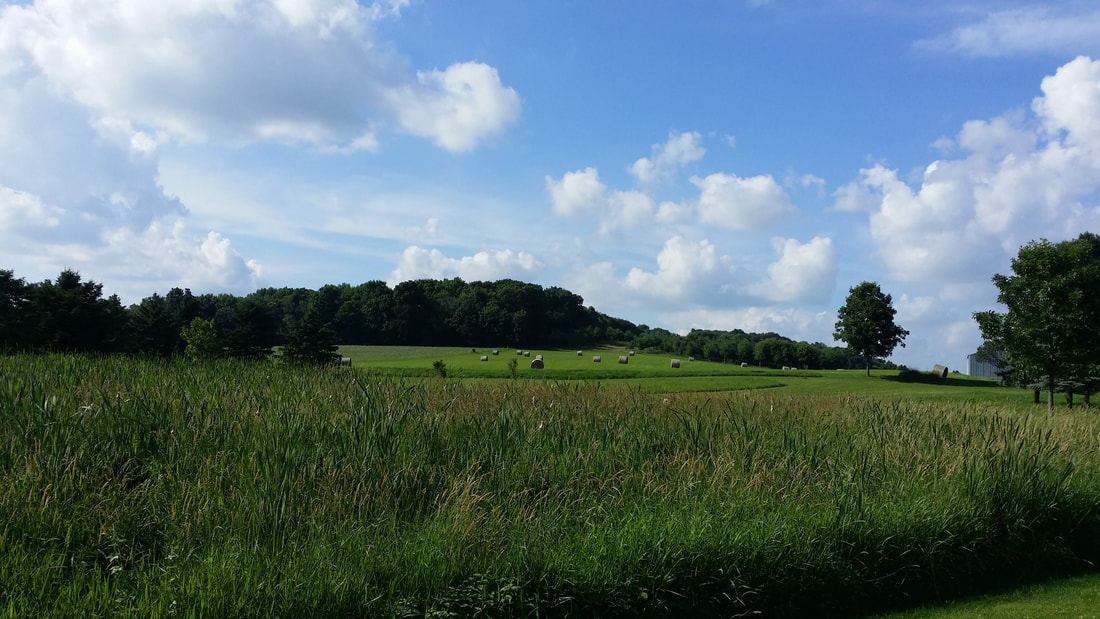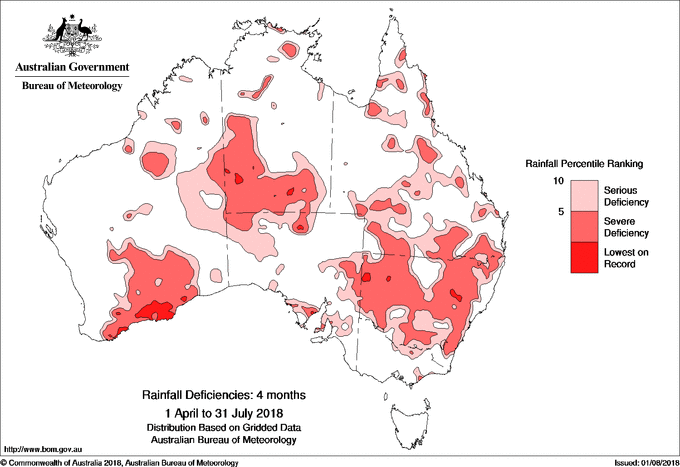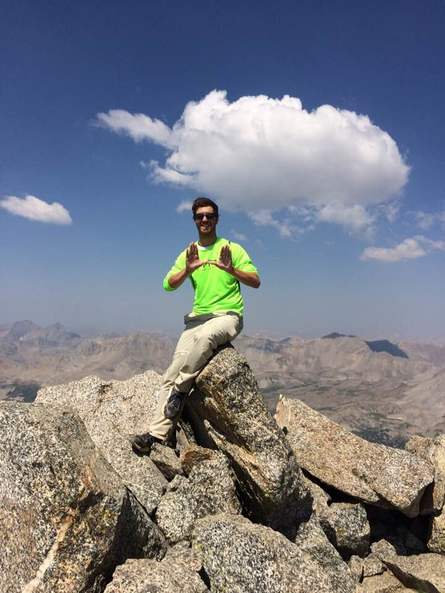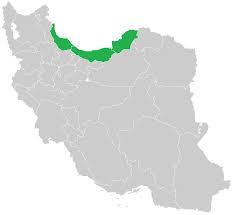|
I'll be out exploring a corner of the world for the next 10 days and do not expect to be posting to my blog or Facebook page much, if at all, during that time.
0 Comments
Pairing its nuclear expertise with its energy sector portfolio, Russia is unveiling a floating nuclear reactor at its Murmansk port north of the Arctic Circle, a move "backers say is a leading-edge feat of engineering but that critics call reckless." Proponents of floating nuclear power plants "envision a future when nuclear power stations bob off the coasts of major cities around the world. ... [Russian] officials plan to tow the vessel to coastal cities in need of power, either for short-term boosts or longer-term additions to electricity supply. It can carry sufficient enriched uranium to power the two reactors for 12 years, before having to be towed, with its spent fuel, back to Russia, where the radioactive waste will be processed." Sudan is reportedly interested in becoming Russia's first foreign customer, which geography suggests may mean a floating nuclear reactor moored in the Red Sea in the next few years. Critics are concerned about Russia's spotty record on nuclear safety, among other things. China has plans to build 20 floating nuclear plants of its own.
www.nytimes.com/2018/08/26/business/energy-environment/russia-floating-nuclear-power.html The Nok Caves, a UNESCO World Heritage Site in northern Togo, might look a bit like the cliff dwellings of Mesa Verde, for example, but they were built by Togo's Moba people in the 18th and 19th centuries for a very different purpose: instead of being permanent dwellings, the Nok Caves served as a well-stocked hiding place whenever an enemy tribe raided Moba villages to find people to sell to slave traders in exchange for guns and horses. www.atlasobscura.com/places/nok-caves
This map from a recent article in The Washington Post compares the subject of internet searches by state: in all states, residents were more likely to search for information related to joining or supporting far-right or Neo-Nazi groups than for information related to joining or supporting jihadist groups. The residents in the states shown in yellow were roughly 3x more likely to search for far-right groups; residents in the states shown in dark slate-gray were nearly 15x more likely to search for far-right groups. www.washingtonpost.com/resizer/GmyUav44H64w8Rz5pioKLoTql2w=/1484x0/arc-anglerfish-washpost-prod-washpost.s3.amazonaws.com/public/OLWU4BFD7MI6RLLPBADXBXG5YI.jpg
Scottish philosopher David Hume was a contemporary of Immanuel Kant, Jeremy Bentham, Jean-Jacques Rousseau, and Adam Smith, but today his ideas are less widely taught. This article, by British philosopher Julian Baggini, introduces readers to David Hume, whose skepticism and empiricism were influential in fueling the Enlightenment.
"[According to Hume] our belief in the power of cause and effect, on which all our reasoning about matters of fact rests, is not justified by either observation or by logical deduction. We only ever see one thing following another: we never observe any power that makes one thing necessitate an effect. Even if we could be satisfied that we had established x caused y, logic can’t establish any general principle of causation, since all the regularities we have observed in nature were in the past, but the principle of cause and effect is assumed to apply in the present and future. Logically, you can never arrive at a truth about the future based entirely on premises that concern the past: what has been is not the same as what will be. ... Hume saw human beings as we really are, stripped of all pretension. We are not immortal souls temporarily encaged in flesh, nor the pure immaterial minds Descartes believed he had proved we were. Humans are animals – remarkable, highly intelligent ones – but animals nonetheless. ... Arguing against Descartes’s claim that we are aware of ourselves as pure, undivided egos, Hume challenged that when he introspected, he found no such thing. What we call the ‘self’ is just a ‘bundle of perceptions’. Look inside yourself, try to find the ‘I’ that thinks and you’ll only observe this thought, that sensation: an ear worm, an itch, a thought that pops into your head. Hume ... anticipated the findings of contemporary neuroscience which has found that there is no central controller in the brain, no one place where the sense of self resides. Rather the brain is constantly executing any number of parallel processes. What happens to be most central to consciousness depends on the situation. ... For Hume, morality is rooted in nothing more than ‘sympathy’: a kind of fellow-feeling for others which is close to what we now call empathy. Moral principles cannot be derived by logical deductions, nor are they eternal, immortal principles that somehow inhere in the Universe. We behave well to others for no other reason than that we see in them the capacity to suffer or to thrive, and we respond accordingly. Someone who does not feel such sympathy is emotionally, not rationally, deficient." aeon.co/essays/hume-is-the-amiable-modest-generous-philosopher-we-need-today This cartogram has been making waves in Japan. A cartogram is a map that has been weighted for a particular variable. In this case, the variable is the decline in scientific publications between 2005 and 2015. The three countries that show up most prominently: Japan, Belarus, and Venezuela. worldmapper.org/wp-content/uploads/2018/04/Science_PapersPublishedDecline_2005and2015.png
Looking for a late summer/back-to-school field trip? In Wheaton, MD, Brookside Gardens' annual "Wings of Fancy" live butterfly exhibit lets visitors observe caterpillars and chrysalids and stroll among dozens of species of live butterflies through Sept. 16. www.montgomeryparks.org/parks-and-trails/brookside-gardens/wings-fancy-live-butterfly-caterpillar-exhibit/
Australians are preparing to head into their summer with drought conditions already evident in sections of the country, made worse by the driest July in more than 15 years. This map, from Australia's Bureau of Meteorology, shows the varying levels of rainfall deficiencies across the country. www.bom.gov.au/climate/drought/archive/20180802.drought1.lr.col.gif
Is the International Criminal Court in the Hague having the unintended consequence of prolonging dictatorships? This piece from The Wall Street Journal suggests that the existence of the ICC makes it harder to coax dictators into ceding power and going into exile. Instead, with the threat of arrest and prosecution for human rights crimes should they leave the country, they now have to hang on to power at all costs.
"Decades ago, Latin American dictators losing their grip on power had a reliable exit strategy: exile in some hospitable foreign locale. In 1958, the Venezuelan strongman Marcos Pérez Jiménez fled from a military coup and civilian general strike after eight years in power. He flew first to the Dominican Republic and then to Miami, where he spent five years before his successors managed to extradite him. Even then, after serving five years in prison, he lived out the rest of his life comfortably in Spain. In 1979, Nicaragua’s ruler Anastasio Somoza also found temporary refuge in Miami, fleeing the Sandinista guerrillas who overthrew his government and taking much of the country’s national treasure with him. When he had overstayed his welcome in the U.S, he moved on to Paraguay, hosted by his fellow dictator, Gen. Alfredo Stroessner. For the beleaguered strongmen who now rule these countries, however, such escapes are hard to imagine. ... Since the days of Pérez Jiménez and Somoza, the international community has established far-reaching mechanisms for adjudicating human-rights abuses and tracking the ill-gotten gains of corruption. Former dictators can no longer expect to find refuge abroad, which makes them even more unlikely to surrender power. 'It’s a conundrum,' says Elliott Abrams, who was the State Department’s top diplomat for Latin America during the Reagan administration, when the U.S. assisted in arranging exits for Haiti’s Jean Claude Duvalier, who lived for years in a French château, and for the Philippines’ Ferdinand Marcos, who ended his days in Hawaii. 'We were able to say, if you leave you will be OK, but if you stay who knows what will happen to you. Now, you don’t have that option.'" www.wsj.com/articles/with-old-escape-routes-gone-unpopular-dictators-hang-on-1533314734 If you think you know the tallest mountain in Sweden, you might need to double-check your information. Conde Nast Traveler reports, "This heatwave scorching the Northern Hemisphere is no joke. Just a few days after Death Valley National Park recorded its hottest month ever, news broke that the glacier on top of Sweden's Mount Kebnekaise had melted so much that the peak is no longer the highest in Sweden. ... Before summer, the southern peak of Kebnekaise, part of the northern Swedish branch of the Scandinavian Mountains, clocked in a lofty 6,893 feet above sea level. By July 31, it was 6,879.9 feet. Scientists believe the persistent melting means that by August 2, Kebnekaise's northern peak, made mostly of rock, surpassed the southern as the highest point in Sweden, at 6,879.2 feet. ... July was the hottest month on record in Sweden, according the Swedish Meteorological and Hydrological Institute, with average temperatures three to five degrees Celsius higher than normal." www.cntraveler.com/story/swedens-highest-peak-just-melted-away
With ride sharing on the rise and the proportion of high school seniors possessing a drivers license at record lows, a recent study of parking sponsored by the Mortgage Bankers Association “reveals an investment in parking that is out of balance with the current demand for parking in almost all cases.” In Seattle alone, the value of land currently used for parking exceeds $35 billion, despite the fact that parking occupancy even in downtown Seattle has shrunk to 64%. The purple on these maps show surface parking spaces in Philadelphia (L) and Seattle (R). usa.streetsblog.org/2018/07/12/american-cities-are-drowning-in-car-storage/
It is not often that one comes across a poem that tries to teach philosophy. This poem, which appears in Philosophy Now (UK), creates a modern context for thinking about "Plato's Cave," one of the most famous thought experiments of ancient philosophy.
"Plato’s New Cave" by Clinton Van Inman Of course the rooms are filled with shadows While laser lights and computer programs prove More cost-effective than fire, But the cardboard cut-outs and the curtains Have remained the same; As well as those old lies that trees are real; That the way out really goes somewhere; That math leads more than in circles, And that the Wizard himself is behind the curtains, Keeping the whole domino world from collapsing. Yet only a few poets and down-and-outers dare climb The arduous way out, as most prefer To sit and talk about food and sports. philosophynow.org/issues/126/Platos_New_Cave The population density of the European Union is more than 3x the population density of the United States. This map overlays regions of the EU with U.S. states and territories of a similar population. www.reddit.com/r/MapPorn/comments/96gppy/western_european_regions_population_compared_us/
One of my favorite podcasts is the BBC Radio 4 series "In Our Time," which addresses a wide array of historical and scientific topics, from the Volga Vikings to the Siege of Malta to the science of feathered dinosaurs. With more than 800 episodes to chose from, "In Our Time" offers listeners an opportunity to expand their learning during their walk, commute, or while weeding the garden. It's available to download through iTunes, various Android podcast apps, and straight from the website. www.bbc.co.uk/programmes/b006qykl/episodes/
The Human Development Index (HDI) ranks countries based on education, life expectancy, and per-capita income. This map -- which is based on 2015 data and, therefore, does not consider the hyperinflation that has devastated Venezuela's economy -- looks at the HDI of South American countries by state/province. The region with the highest HDI in South America: Santiago Province, Chile. www.reddit.com/r/MapPorn/comments/95xxgz/subnational_entities_of_south_america_by_human/
Students in my "Mission Possible: Global Issues, Leadership Choices" class occasionally have to contend with Grey Swans, or unexpected events, that threaten to upend their plans. This article from Bloomberg Businessweek looks at a real-life Grey Swan: the consequences of an accidental or intentional disruption of the Global Positioning System.
"GPS isn’t just for maps. It’s also a kind of vast, spaceborne clock. Computers all over Earth use it to determine what time it is, down to billionths of a second. When there’s the slightest disagreement among those computers, things fall apart. Microsemi’s timing receivers were frantically issuing error messages because of just such a discrepancy. ... Over the next 11 hours, cellphone towers lost their connections, U.S. police and fire stations reported communications errors, BBC radio signals were interrupted, and the telescope that tracks asteroids in Earth’s orbit went offline. ... It’s tough to overstate how GPS-dependent the world economy has become since the U.S. Department of Defense started giving the service away to the public in 2000. There are 2 billion GPS receivers in use around the world, a number that Europe’s satellite navigation agency estimates will hit 7 billion by 2022. Along with the telecommunications industry, banks, airlines, electric utilities, cloud computing businesses, and TV broadcasters require constantly precise GPS timing. Emergency services do, too, as do military forces. The U.S. Department of Homeland Security has designated 16 sectors of infrastructure as 'critical,' and 14 of them depend on GPS." www.bloomberg.com/news/features/2018-07-25/the-world-economy-runs-on-gps-it-needs-a-backup-plan The tallest mountain in the contiguous U.S. is Mt. Whitney, east of Fresno in California's Sierra Nevada Mountains. The next three tallest mountains in the contiguous U.S. are southwest of Denver in Colorado's Rocky Mountains: Mt. Elbert, Mt. Massive, and Mt. Harvard. Yesterday, my kids climbed Mt. Harvard, making them, for a short while, probably the highest people in the contiguous U.S. (The photo is of my oldest at the summit, showing that even on Mt. Harvard, "it's all about the U.")
To what purpose is more land in the contiguous U.S. devoted than any other? If you guessed pasture and grazing, you'd be right. This graphics-rich analysis from Bloomberg provides a detailed look at land use in the U.S. www.bloomberg.com/graphics/2018-us-land-use/
This thoughtful essay explores issues in everyday ethics:
"You want to do the right thing. But in a world where it often seems impossible to eat, shop, drive, travel, or pretty much do anything without causing some measure of harm to others and the planet, leading an ethical life seems like a very tall order indeed. It’s true that practically everything we do in life has ethical repercussions. 'Any decision that has an impact on others now or in the future is an ethical choice,' explains ethicist Christopher Gilbert.... Gilbert says it’s useful to consider ethics like a moral ladder. On the lowest rung, you think only of yourself. Past the middle rung, you’re thinking of the decision’s influence on some. And on the highest rungs, you’re wondering how every choice impacts all affected by it. 'When we step up that ladder and consistently strive to stay at the top rung, we are living an ethical life,' he says. Will we be at the top rung all of the time? Almost certainly not. But the answer isn’t to throw up our hands. Rather, we can keep on trying, every day and throughout our lives, to approach the world thoughtfully and consider the implications of our individual actions on others. "Depending how far and wide you extend your empathy and ethical efforts, you may find that seemingly simple dilemmas, like what to wear or what to eat, become incredibly complex upon reflection. The clothing retailer ASOS, for example, recently announced it won’t sell silk products anymore out of concern for the welfare of silkworms who die in the material’s production process. But ... refusing to buy silk also has an economic impact on workers in India and China, where silk production is a tradition. Add to that the fact that even cotton is problematic—it’s a crop that demands a lot of water, making it environmentally taxing—and you find yourself in a pickle over the simple act of choosing a shirt. Now you’re making a decision that impacts worms, the Earth and your fellow humans. What do you do? ... The moral of the story? The best way to live an ethical life isn’t to find all the answers, but to be willing to wrestle with difficult questions." qz.com/1327804/its-impossible-to-lead-a-totally-ethical-life-but-its-fun-to-try Most people outside Iran are unaware that Iran's northern coast, along the Caspian Sea, includes a large temperate rainforest (shown in green on this map). Land is this area is being snapped up by people from other parts of the country as water scarcity issues worsen in Iran. According to the head of Iran's Department of Environment, over the next 25 years, Iran's water crisis could displace 50 million Iranians (from a population of about 90 million), such that perhaps Iran as it is today “will not exist anymore.” www.al-monitor.com/pulse/originals/2018/08/iran-drought-caspian-sea-northern-provinces-center-arid.html
The ability to recognize other languages/alphabets often comes in handy in identifying place names, understanding historical relationships between countries, and otherwise interpreting geographic information. This thoughtfully designed 60-question quiz combines a written phrase (typically a proverb) in a given language with a photo of a place that language is spoken. passport.topix.com/quiz/19816
This topological cartogram, based on data from the World Trade Organization, shows the countries of the world by the value of their exports. (This graphic does not include those countries that do not export at least $20 billion worth of goods, explaining the absence of parts of South America and most of Africa, among others.) howmuch.net/articles/largest-exporting-countries-2017
As the Arctic heats up (literally), territorial disputes between the eight Arctic countries are also expected to heat up. At issue are fishing rights, mineral rights, navigation rights, and military use in a region that has, for the most part, previously been inaccessible and irrelevant. This article from Geographical (UK) lays out the spat between Canada and Denmark, for example, over a tiny island in the narrow Kennedy Channel separating Greenland (which is administered by Denmark) from Canada's Ellesmere Island. geographical.co.uk/geopolitics/geopolitics/item/2834-divided-island
The Aral Sea was once the world's 4th largest freshwater lake, but it has lost about 90% of its volume due to agricultural policies in first the Soviet Union and then the successor countries of Uzbekistan and Kazakhstan. Today, however, part of the Aral Sea -- the northern section in Kazakhstan -- is making a comeback. Kazakhstan erected a dyke, effectively dividing the Aral Sea in two, and has made changes to allow the Syr Darya River to again fill the northern portion of the Aral Sea. (On the other side of the dyke, the southern Aral Sea continues to shrink, and Uzbekistan shows little interest in allowing the waters of the Amu Darya River to resume their path to the southern Aral Sea, despite worsening dust storms.) www.bbc.com/future/story/20180719-how-kazakhstan-brought-the-aral-sea-back-to-life
As of this writing, there are 2,017 active wildfires in the U.S., all of which are burning west of Missouri. This interactive site from the Fire, Weather & Avalanche Center provides users with information on specific wildfire locations and degrees of containment. (Green "flame" marker=new fire; larger boxed green "flame"=new and fast moving fire; orange "flame"=<100 acres; boxed orange "flame"=100-1,000 acres; red "flame"= more than 1,000 acres.)
www.fireweatheravalanche.org/fire/ |
Blog sharing news about geography, philosophy, world affairs, and outside-the-box learning
Archives
December 2023
Categories
All
|




 RSS Feed
RSS Feed